How to Measure Band Saw Tires for Replacing: 8 Tips & Tricks
-
Ed Malaker
- Last updated:
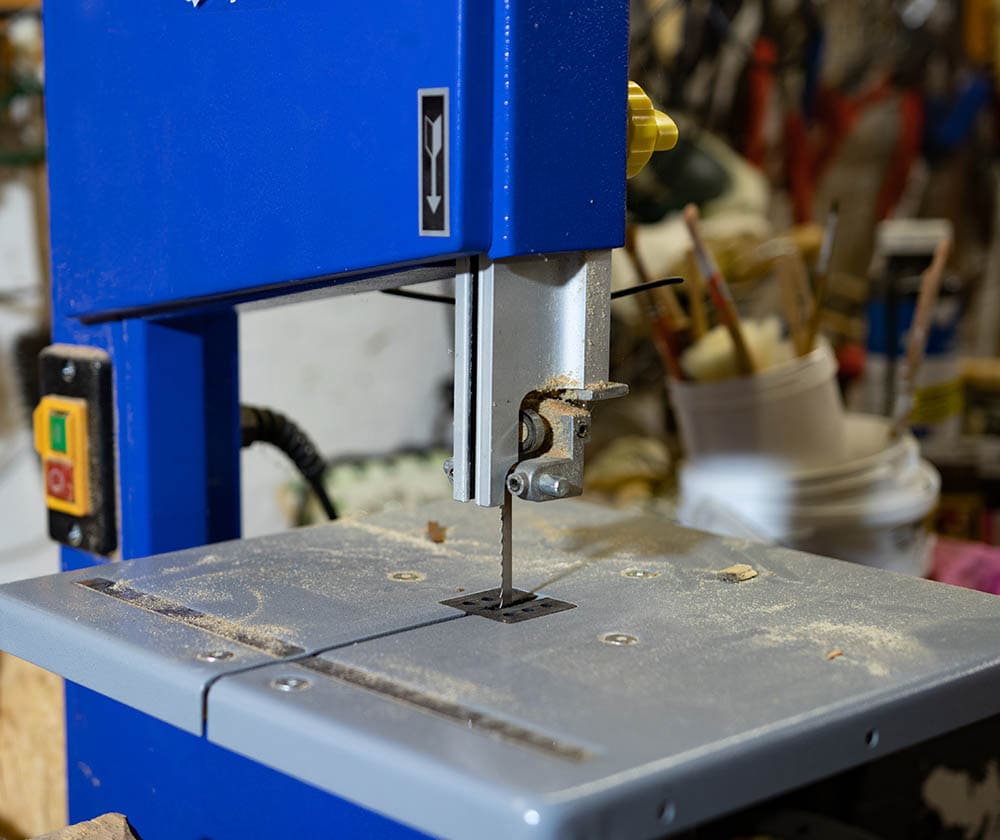
Properly maintaining your equipment is an essential part of operating any workshop. However, some tools, like the band saw, aren’t as easy to figure out as others, and many people would like tips and tricks for doing things like measuring the band saw tires so you can replace them. If this sounds like your situation, keep reading as we answer this question and provide you with a step-by-step guide to measuring these tires so you can replace them successfully and keep your workshop operating as it should.
How Do I Know If I Need to Change the Wheels on My Band Saw?
If your saw begins to cut unevenly, there’s a good chance that it’s time to change the tire. You may also notice cracking or wear on your current tire during a visual inspection. Any sign of deterioration is a clear sign that it’s time for a new one.
Before You Begin
We highly recommend getting all your tools together before starting your project, so you don’t need to stop in the middle of work, which can lead to errors. You won’t need that many tools, but we do recommend being patient, especially when taking measurements, in order to be as accurate as possible. We also recommend unplugging your band saw so there are no accidents.
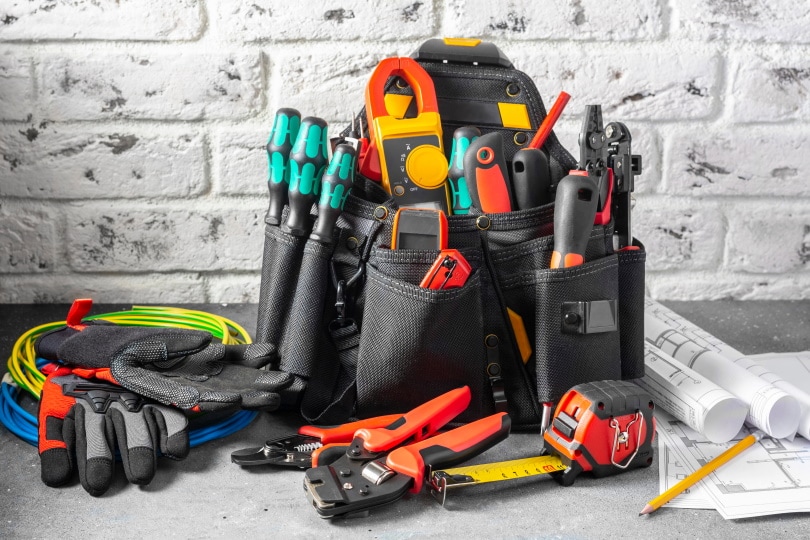
Tools Required
- Heavy-duty gloves
- Eye protection
- Ruler or measuring tape
- Isopropyl alcohol
The 8 Tips & Tricks on How to Measure Band Saw Tires for Replacing
1. Measure the Band Saw Wheel
Open the enclosure to expose the upper bandsaw wheel, and use your tape measure or ruler to measure its diameter accurately. Measure it at least twice, so you are sure you are correct.
Quick Tip: Band saw wheels come in sizes ranging between 10 inches and 20 inches, but they are always an even number, which can help you determine if your measurements are correct.
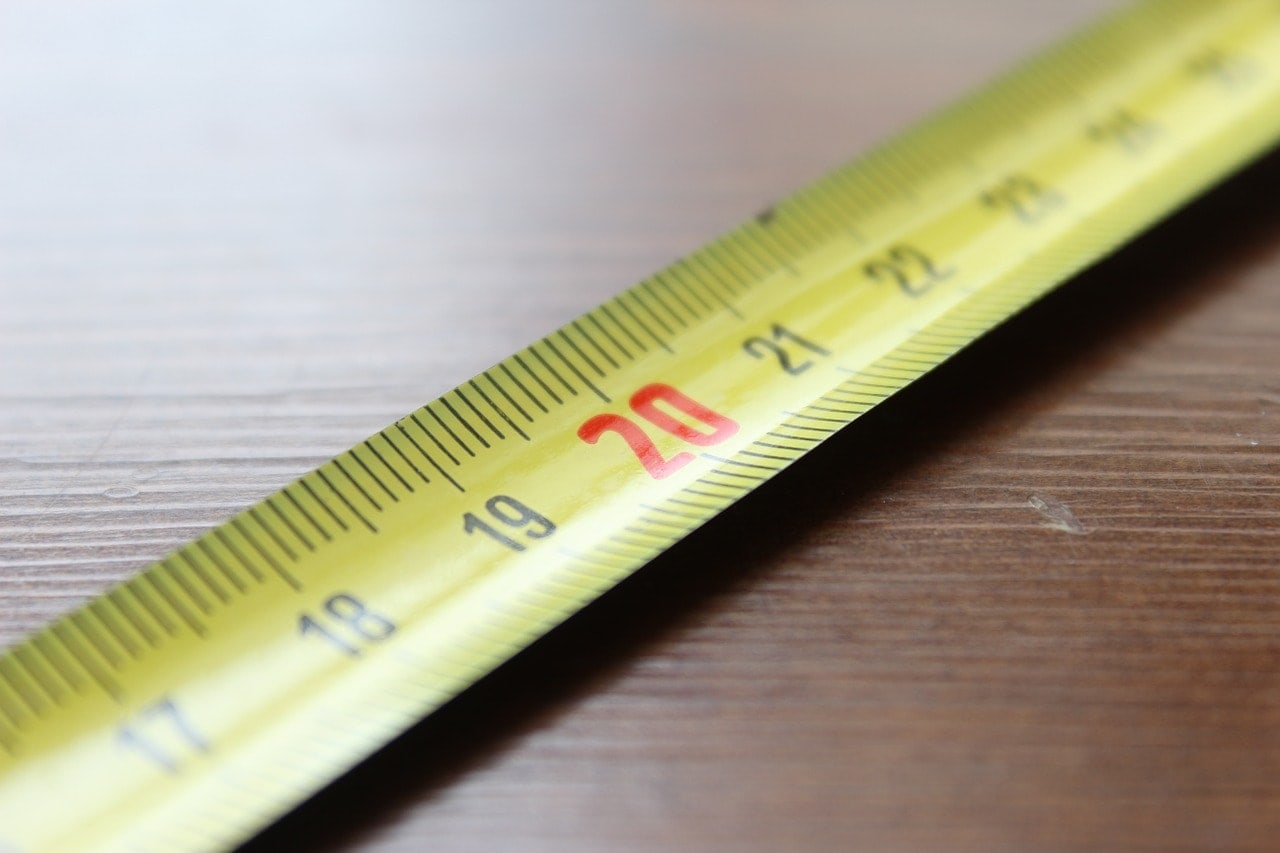
2. Subtract 2
To get the correct tire size that you need for your band saw, subtract 2 inches from the wheel measurement that you took in the last step.
3. Remove the Blade
The process of removing the blade can vary from machine to machine, so you’ll need to check your manufacturer’s guidelines for the proper steps. Standard procedure is while wearing your heavy-duty gloves and eye protection, to remove the blade insert on the table and turn the tension knob to release the blade. When it sits loosely on the upper wheel, you can remove it.

4. Remove the Old Tire
Use a razor blade or flat-head screwdriver to get under the old tire and lift it so you can pull it off the wheel. Some will be easier to get off than others, depending on how old it is, and it will be important to remove any residue on the wheel using your screwdriver so you can apply the new tire to a clean surface. Isopropyl alcohol can help too.
5. Select Your Replacement Tire
Rubber
Rubber tires are more affordable but wear down quickly and can gum up your machine.
Urethane
Urethane tires are high quality but expensive. It’s simple to install urethane tires, though, because they don’t require any glue and tend to last a long time. You can also get these tires in safety colors, like orange, making it easy to see any damage when you inspect them.
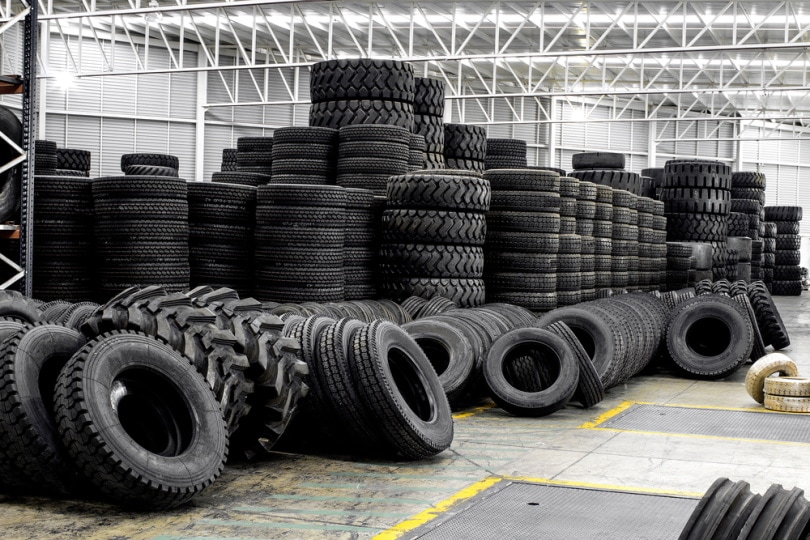
6. Prepare Your New Tire
Submerge your new tire in hot soapy water for several minutes before you attempt to install it. Submerging it helps make it more flexible, making it easier to get on the wheel.
7. Install Your New Tire
Use a small clamp to clamp the tire to the wheel at one spot, and use a large flat-head screwdriver or putty knife to work the tire onto the wheel slowly. It’ll be extremely tight and require plenty of patience to get it installed without doing any damage. You will also need to apply glue if you have a rubber tire.
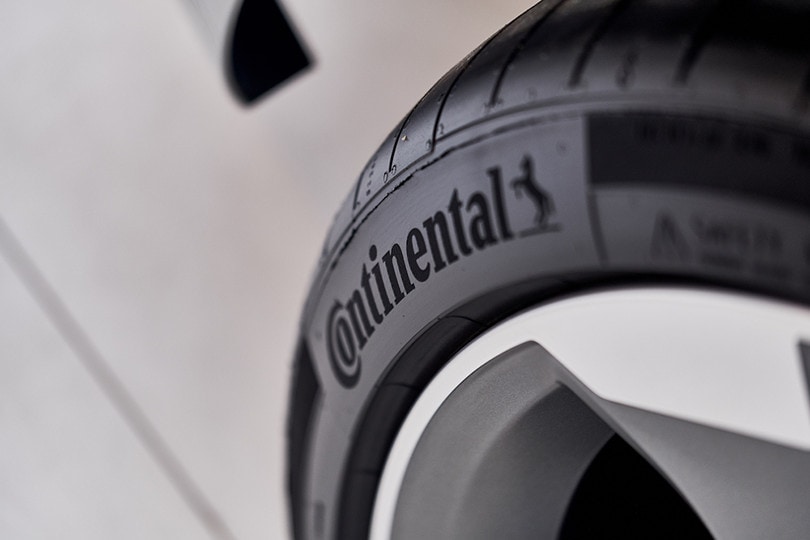
8. Change the Blade
Since you’ve already opened the machine and removed the blade, it’s usually a good idea to also replace that component so you can get the best performance possible from your band saw once you put it back together.
Conclusion
Measuring your band saw tires for replacing is easier than you might think and only requires two steps: Carefully measure the wheel, and then subtract 2 inches to know what size tire you should purchase. Changing the tire doesn’t require any special tools, but the project can be challenging because it fits tight. We recommend urethane tires if your budget allows because they last a long time and don’t require glue.
Featured Image Credit: eisbild, Shutterstock
Contents

